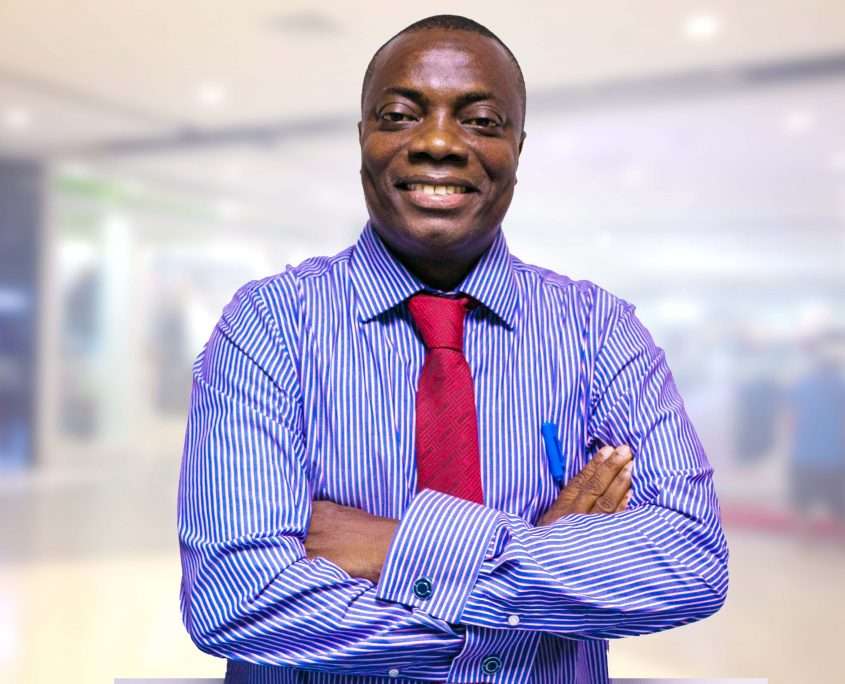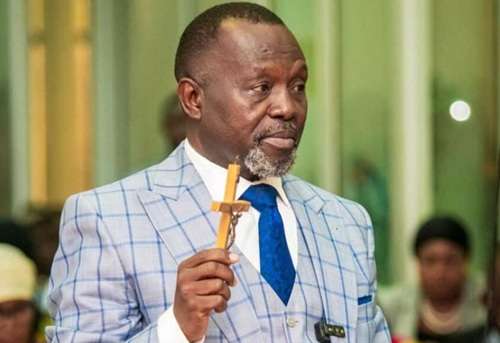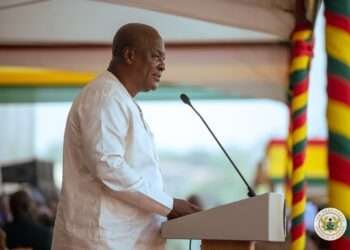In the wake of recent high-profile cases being withdrawn by the Attorney General’s (AG) office, the debate over the separation of the AG’s prosecutorial powers from political control has resurfaced again.
Ethics advocate and Executive Director of Global InfoAnalytics, Mussa Dankwah, has reignited discussions on the need to create a State Prosecution Department led by career prosecutors—one that is insulated from the political interference that has long tainted Ghana’s justice system.
“There is a reason we have been urging the creation of a state prosecution department led by career prosecutors. The Attorney General’s department has been used to persecute people the incoming government perceives as corrupt. There is always the accusation of political persecution.”
Mussa Dankwah
The AG, who doubles as the Minister of Justice and is appointed by the President, is expected to ensure justice is served fairly. However, Mussa Dankwah strongly asserted that history has shown that the office has often been used to target political opponents while shielding allies from prosecution.
According to him, in opposition, political parties decry the injustices of this arrangement, but once in power, they turn a blind eye to the calls for reform.
He posited that the same tool they once condemned becomes their instrument of choice for settling political scores, asserting that it is a vicious cycle where an incoming government initiates prosecutions against members of the previous regime, while their appointees enjoy protection.
This is the reason, Mussa Dankwah argued, that successive governments have ignored demands to separate state prosecution from the Attorney General’s office.
The perception of political persecution has plagued Ghana’s justice system for decades, leading to growing mistrust in the independence of the AG. This has made high-profile corruption cases appear more like political witch-hunts than genuine efforts to fight corruption.
Mussa Dankwah’s concern is that so long as the AG retains the power to prosecute, accusations of bias and selective justice will persist, undermining confidence in Ghana’s judiciary.
A Pattern of Convenient Case Withdrawals
One of the most telling signs of political interference is the withdrawal of cases under successive governments. In Ghana’s legal system, the Attorney General has the power to enter a “nolle prosequi” —a decision to discontinue prosecution at any stage of a trial.
This power has often been wielded suspiciously, with cases against political allies being dropped while those against opponents are pursued aggressively.
Mussa Dankwah drew attention to the fact that under Ghana’s Special Prosecutor, such case withdrawals have not been common, even when the government changes.
He argued that this is because the Office of the Special Prosecutor (OSP) enjoys a greater degree of independence than the AG.
“To date, why have we not seen the OSP file any nolle prosequi even though the government has changed? Because of the perceived independence of the OSP and his insulation from political interference, he will continue with the cases he deems can be prosecuted.”
Mussa Dankwah
The contrast between the AG and the OSP is a strong argument for reform with Mussa Dankwah questioning why the State Prosecutor’s office can’t function independently and pursue corruption cases across different political regimes, like the Office of the Special Prosecutor.

The answer according to Mussa Dankwah is simply because of the political control, asserting that the AG remains a political appointee, expected to protect the interests of the government that appoints them.
Perhaps the most striking aspect of Mussa Dankwah’s argument is the question of whether any government would allow its former officials to be vigorously prosecuted by its own AG.
The reality, he pointed out, is that an incoming government is unlikely to prioritize cases that target its own appointees, no matter the evidence against them. Instead, their focus is usually on prosecuting members of the previous government, reinforcing the perception that justice is selective.
“But, honesty, which government will allow its former officials to be prosecuted by their own Attorney General? How do you expect such cases to be a priority for the new AG and how vigorous do you believe the AG will pursue such cases? Why are we crying when the AG withdraw from these cases?”
Mussa Dankwah
Call for Urgent Action
As Ghana embarks on a long-overdue constitutional review, there is a golden opportunity to finally address this issue. Mussa Dankwah urged that the review must decisively separate the AG’s office from state prosecution to ensure that justice is not subject to political manipulation.
This move according to Mussa Dankwah would prevent a situation whereby if a future NPP government, for instance, takes power and initiates prosecutions against NDC members, the same accusations of witch-hunting will not arise, and likewise, an NDC government prosecuting NPP officials will not face the same allegations.
The cycle will continue unless reforms are put in place to create an independent State Prosecution Department that is free from political interference.
Countries with robust legal systems, such as the United States, have long recognized the dangers of politically controlled prosecutions.
Their Department of Justice operates independently, ensuring that the law is applied fairly regardless of political affiliations. Ghana must take a similar approach if it truly wants to fight corruption and restore public confidence in the justice system.
The constitutional review presents a once-in-a-generation opportunity to implement real change. If Ghana fails to act now, the country will remain trapped in a cycle where justice is not about right or wrong but about who holds power.
The continued use of the AG’s office as a political tool undermines democracy and erodes trust in public institutions.
If Ghana truly seeks to end political witch-hunting and ensure fairness in prosecutions, then the separation of the AG’s office from state prosecution must be a national priority.
Failure to act will mean that in the next political cycle, the same accusations, withdrawals, and selective prosecutions will repeat themselves—leaving Ghanaians disillusioned and justice compromised once again.
READ ALSO: Ghana’s Gold-for-Oil Programme Falls Short of Goals




















